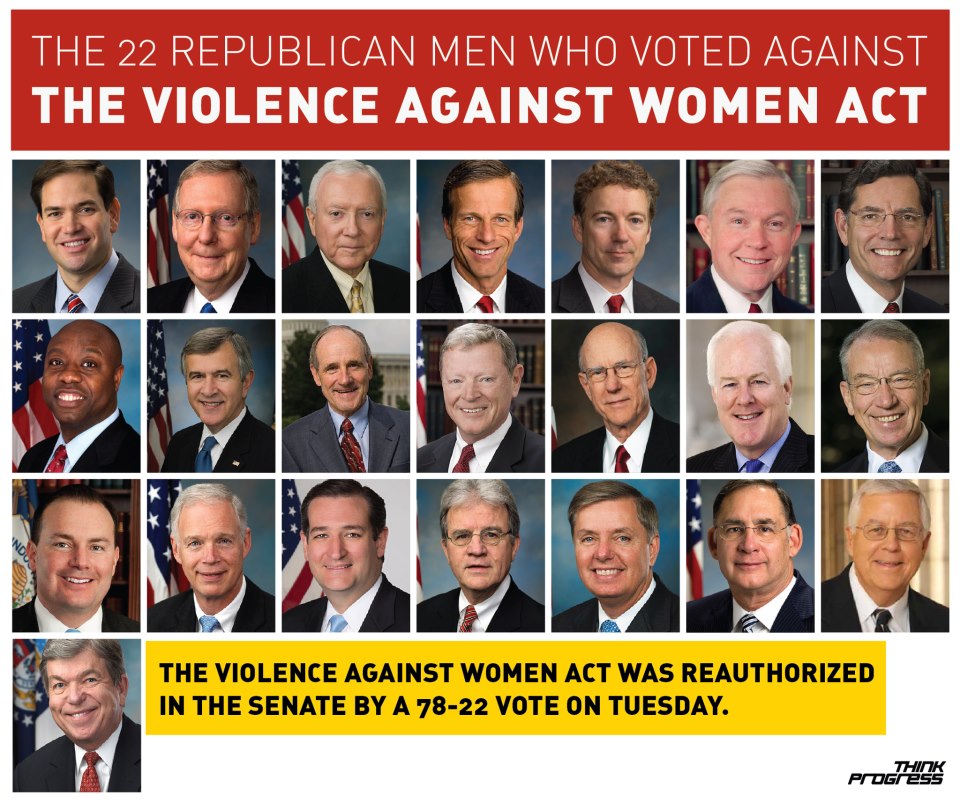Violence Against Women Act Renewed in Senate; 22 Men Voted NO
February 12, 2013
By Annie-Rose Strasser and Adam Peck
The Violence Against Women Act reauthorization passed through the Senate on Tuesday afternoon, by a vote of 78 to 22. Of those opposing the legislation, all 22 were Republican men. Every female Senator of both parties supported the bill.
Among the most notable votes against the bill were Senate Minority Leader Mitch McConnell (R-KY), and Sen. Marco Rubio (R-FL).
The Violence Against Women Act reauthorization passed through the Senate on Tuesday afternoon, by a vote of 78 to 22. Of those opposing the legislation, all 22 were Republican men. Every female Senator supported the bill.
Among the most notable votes against the bill were Senate Minority Leader Mitch McConnell (R-KY), and Sen. Marco Rubio (R-FL). Here’s a look at all 22 opponents of VAWA:
VAWA expired during the previous Congress, and because of Republican opposition to provisions for Native American, undocumented, and LGBT victims of domestic violence, the different versions approved by the House and by the Senate were never reconciled, and the bill died without final passage at the end of 2012.
Since its inception in 1994, VAWA has established a system for helping women in danger. The law created the National Domestic Violence Hotline, made stalking illegal, and helped drive down the number of partner homicides.
Two Senators — Sen. Chuck Grassley (R-IA) and Sen. John Cornyn (R-TX) — also offered significant amendments to the VAWA bill. Grassley’s amendment stripped all Native American, LGBT, and undocumented victim protections. It was voted down on Thursday of last week. Cornyn’s, aimed exclusively on the bill’s language relating to tribal lands, failed on Monday.
Last week, eight Senators voted against even moving to debate on the revived legislation, and they are among those who voted against its passage. Four of them did so because their radical interpretation of the constitution precludes federal protection for domestic violence victims.
The version passed by the Senate today will next go to the House for a vote, where it is expected to encounter some difficulties, particularly over the protections of tribal women included in the bill.


